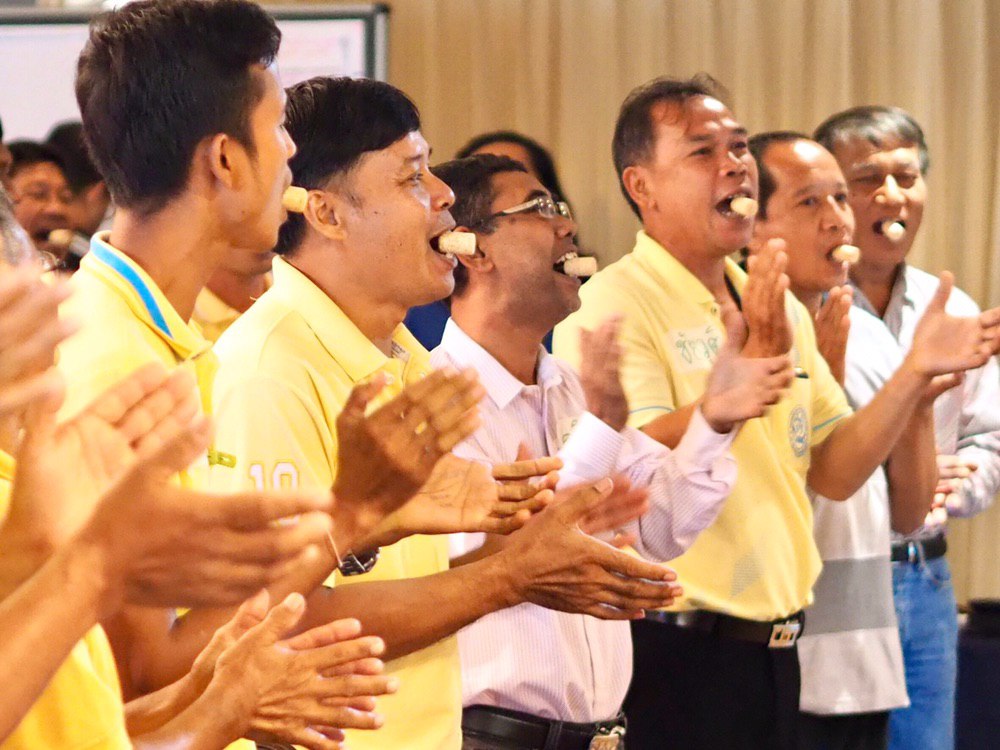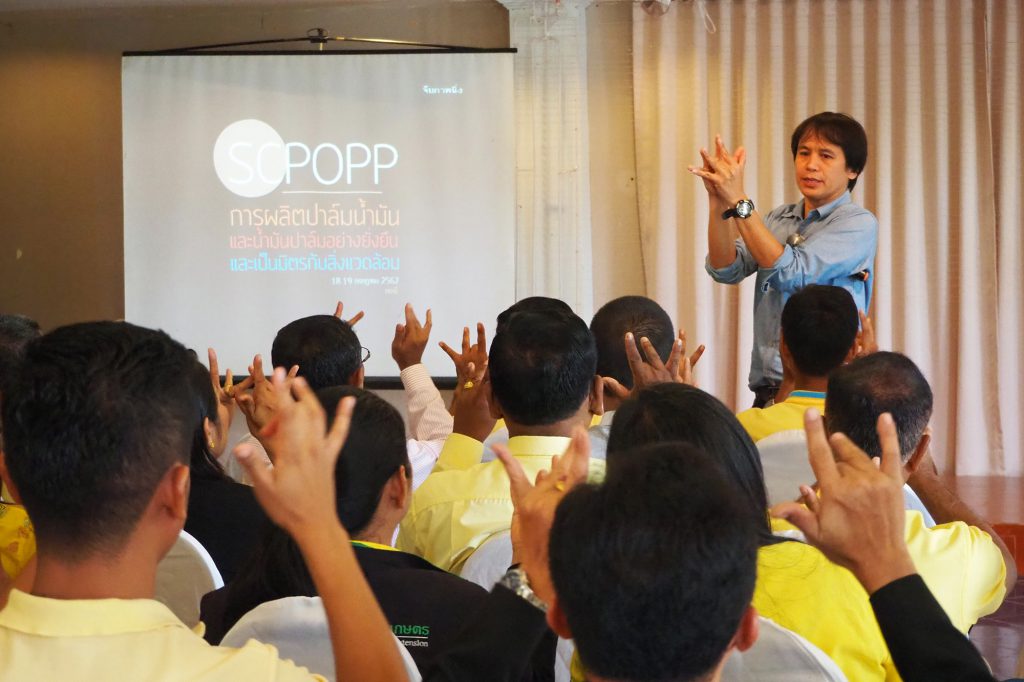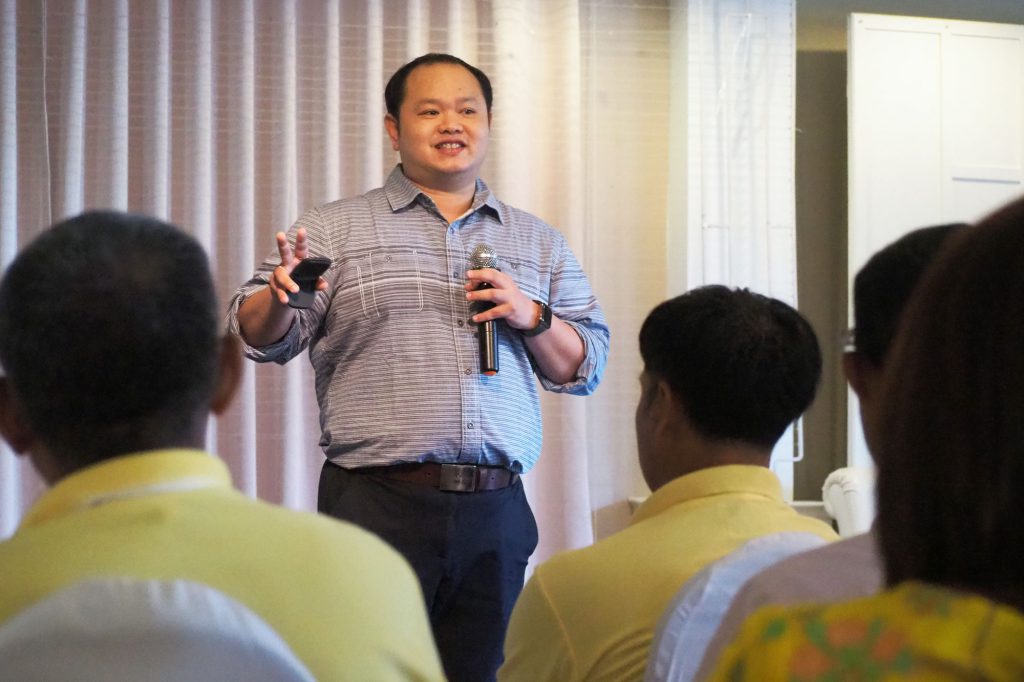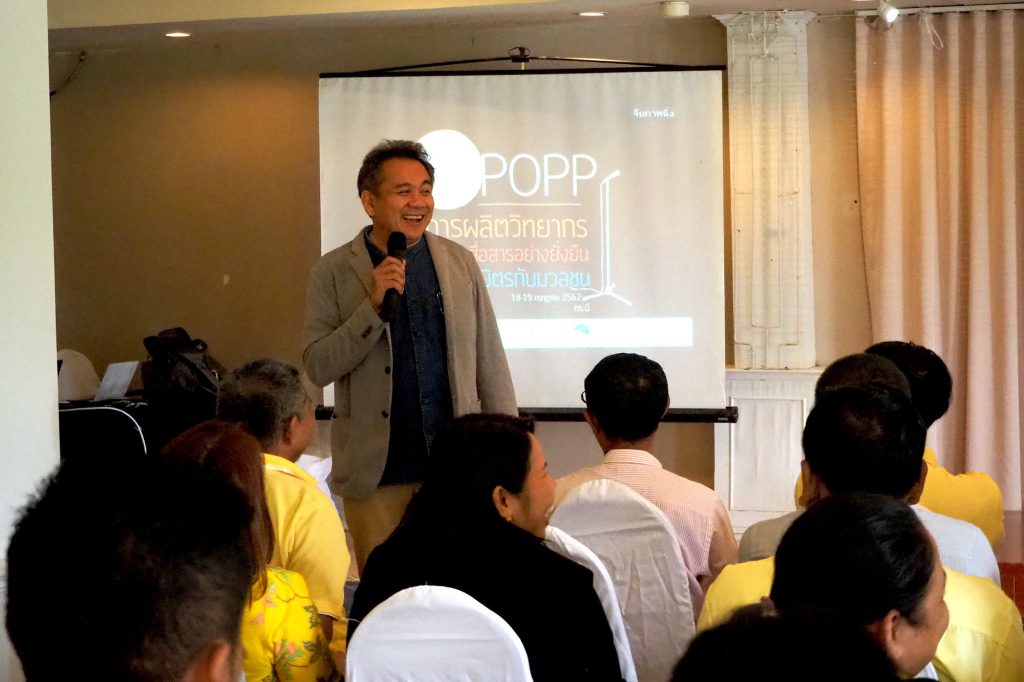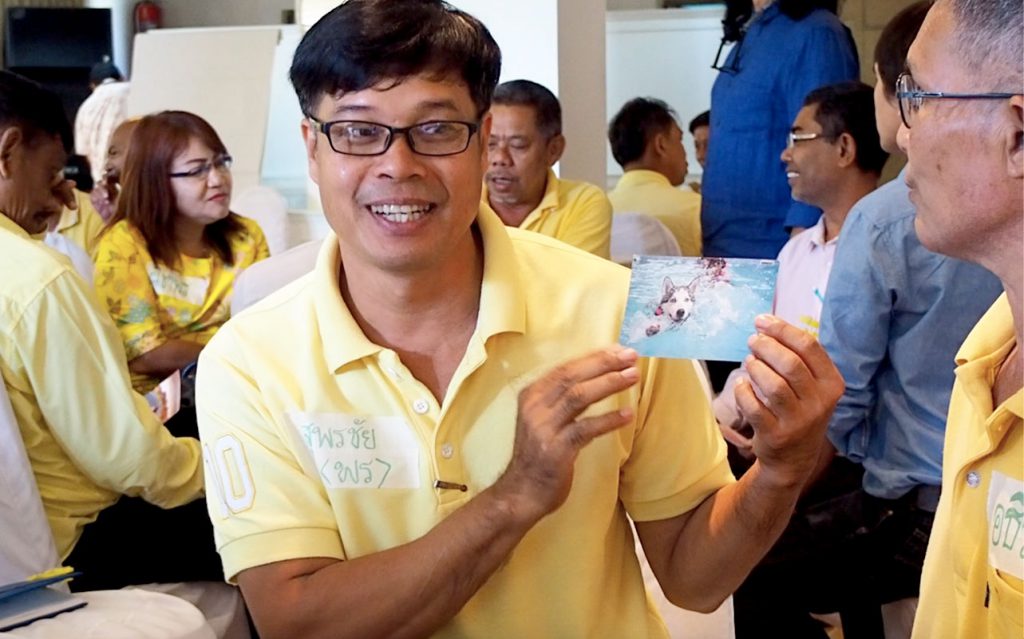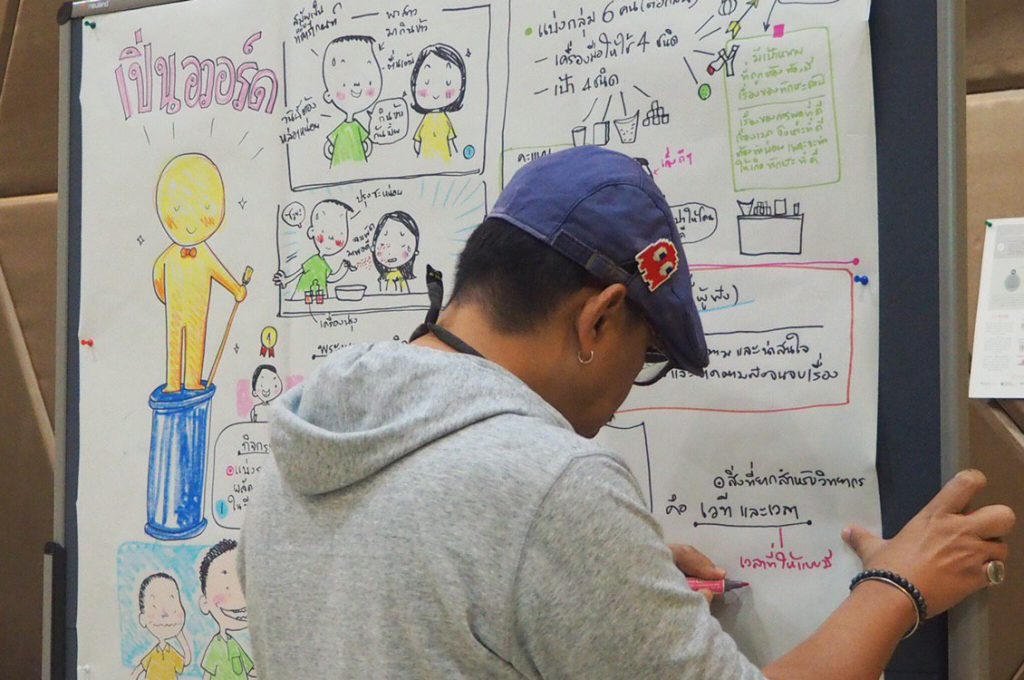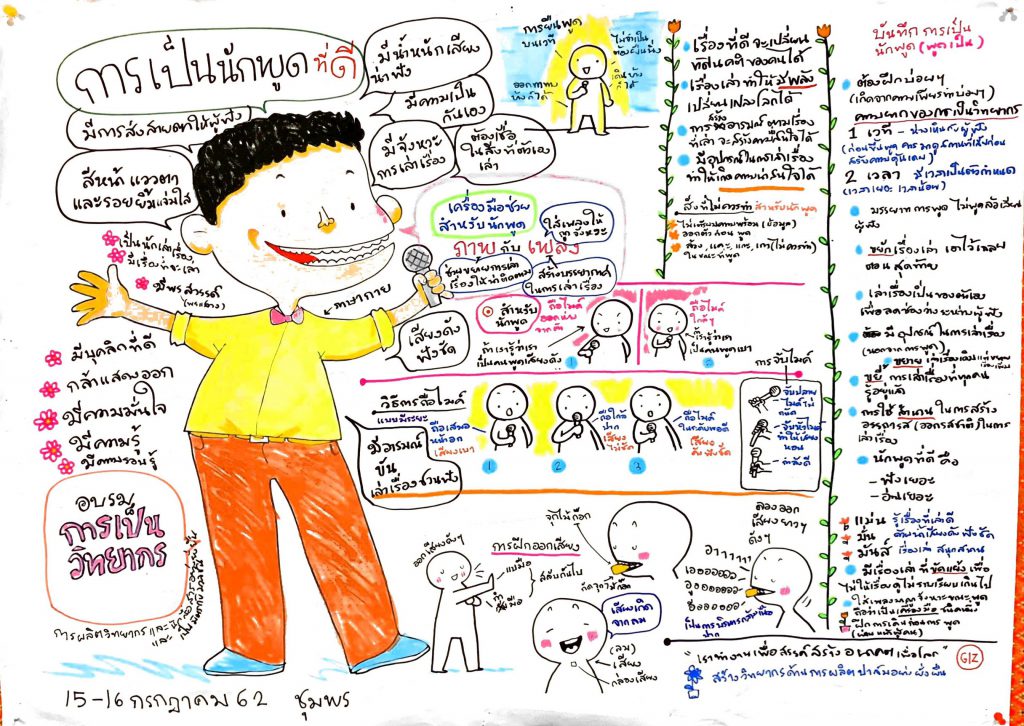Despite strong knowledge and experiences in the palm oil industry, the farmers in southern Thailand are eager to learn more about soft skills that can help them share the ideas about the sustainable practices with their fellows.
Speaking to more than 40 oil palm smallholder farmers in Krabi’s Ao Luk district yesterday, Su Boonlieng, the trainer, has given advice on which soft skills are necessary to help convey more persuasive messages within a narrative form.
“No one likes to listen to only academic stuffs. People want to listen to the story, especially those that link to personal experiences. You need to structure the story,” he told a group of local farmers.
Mr. Su, also singer and author, said that academic data should go hand in hand with narrative.
“The stories have power to bring people together and make a change.”
Unlike hard skills which are learned skills and easily measurable, soft skills closely tied to personality and social interaction and are more subjective.
The training of trainer skills was carried out by the Sustainable and Climate-friendly Palm Oil Production and Procurement (SCPOPP) Project that has prioritized soft skills as basic and important qualities for the oil palm smallholder farmers.
“The oil palm growers have real knowledge, but they do not know how to pass on their knowledge and the project’s key purposes,” Thitinai Pongpiriyakit, the project’s field manager said.
According to Mr. Thitinai, the training aims to equip the oil palm smallholder farmers with effective storytelling techniques and public speaking skills.
Strong knowledge in sustainable practices and effective communication become an important amplifier for the trainers to spread the message about the right way to make the oil palm plantation more environmentally friendly in the long term while earning a living.
Ms. Nichaporn Haemin, a 55-year-old participant farmer from Muang district said storytelling is not that easy for her as she used to speak and write in an academic style, which people do not usually get it.
“I like storytelling through with a random photo the most because it helps me structure the story [about the sustainable oil palm] I want to share with my friends and put a story sequence in a proper order,” a former civil servant shared her thoughts.
The training programme, organized between 18-19 July 2019, focuses on storytelling, delivery of key message, public presentation, public speaking, non-verbal language, self-confidence and clear pronunciation.
The same training was held earlier in the same month in two other oil palm producing provinces – Surat Thani and Chumphon.
